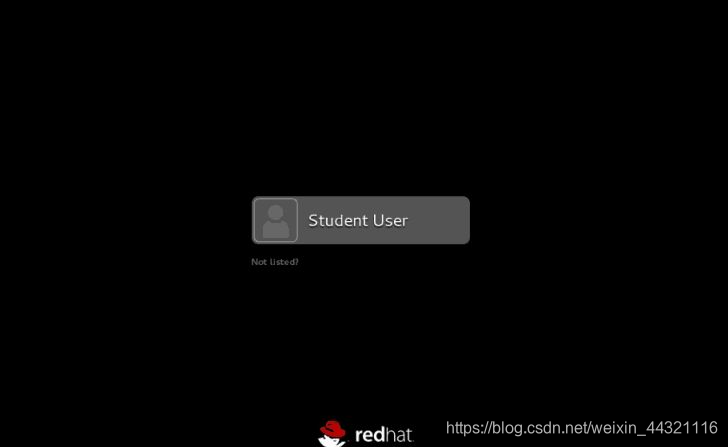Linux新手基礎1-認識linux
Linux新手基礎1 ——認識linux
1.輸入法調整的調整
Application ----->System Tools -----> Settings ------> Rejion&language -----> Input source ---->+ ---->Chinese ---->Pinyin
注意: 設定好之後用shift 是切換語言的方式
2.虛擬機器的管理
常規操作:
[[email protected] Desktop]$ rht-vmctl start desktop
##開啟虛擬機器
[[email protected] Desktop]$ rht-vmctl view desktop
##顯示虛擬機器
[[email protected] Desktop]$ rht-vmctl poweroff desktop
##關閉虛擬機器
[[email protected] Desktop]$ rht-vmctl reset desktop
##重置虛擬機器,當虛擬機器出現任何解決不了的問題時就使用這個命令
報錯分析:
[[email protected] ##虛擬機器正在執行
[[email protected] Desktop]$ rht-vmctl view desktop Error: unable to view desktop - not currently running.
##虛擬機器未執行,不能直接顯示
[[email protected] Desktop]$ rht-vmctl stat desktop This utility manages the Red Hat Training VMS on the local hypervisor. Usage: rht-vmctl [-q|--quiet] VMCMD VMNAME [DATETIME] rht-vmctl -h|--help where VMCMD is one of: view - launches console viewer of VMNAME start - obtain and start up VMNAME stop - stop running VMNAME
##引數報錯
Error unrecognized VMNAME specified , dektop
##虛擬機器名稱錯誤
[[email protected] Desktop]$ rht-vmctl start desktop bash:rht-vmctl:command not found...
##命令錯誤
虛擬機器資訊:
desktop:
| 使用者 | 密碼 |
|---|---|
| student | student |
| root | redhat |
server:
| 使用者 | 密碼 |
|---|---|
| student | student |
| root | redhat |
root登陸順序
Not listed -----> root ----> redhat
3.文字介面登入
Red Hat Enterprise Linux Server 7.0 (Maiop) ##系統版本
Kernel 3.10.0-123.el7.x68_64 on an x86_64 ##核心版本
desktop login: ##輸入使用者名稱稱
passwd: ##輸入密碼(密碼不回顯)
4.什麼是shell
shell是保護核心的軟體並提供使用者和Linux作業系統之間的介面。
當前系統預設使用使用型別:bash ##GNU Bourne again Shell
5.在linux中如何執行命令
| 命令 | 引數 | 目標 |
|---|---|---|
| ls | -s | test |
| ls | --size | test |
敲重點:
1.引數用來指定命令的某些功能,可以加也可以不加
2.命令和引數和目標之間一定要用空格分開 否則會報錯
3.引數中“-” 表示單詞的縮寫,“–”表示單詞的全拼
4.在執行命令時通常遵循這些規則,特殊情況除外
5.命令必須在行提示符之後輸入,沒有行提示符的輸入時無效的。
**6.命令列提示符中每個字元的含義
[[email protected] Desktop]#
| root | 執行shell的使用者是誰 |
|---|---|
| @ | 分割符號 |
| localhost | 主機短名稱 |
| Desktop | 所在當前主機的位置 |
| # | 身份提示符號 $表示普通使用者 #表示超級使用者 |


